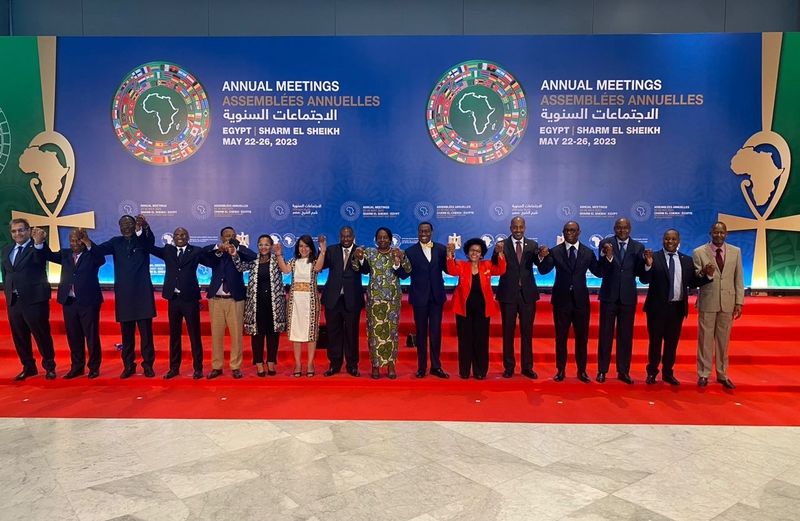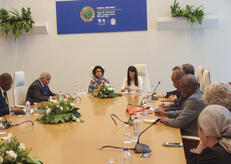AUDA-NEPAD CEO's Remark during session on Mobilizing Capital for Smart Infrastructure and Deeper Integration

Remarks made by CEO of the African Union Development Agency-NEPAD, Ms Nardos Bekele Thomas during the session on Mobilizing Capital for Smart Infrastructure and Deeper Integration.
Date: 25th May 2023
Venue: Sharm El Sheikh International Conference Center, Egypt
My Dear Brother, President Adesina of the African Development Bank (AfDB),
Distinguished Colleagues,
Excellencies, Ladies and Gentlemen,
Good morning
I extend my gratitude to the AfDB for initiating this valuable platform that brings together Regional Economic Communities (RECs) and African Union Institutions to address Africa's development challenges and seek solutions. The bank's pivotal role as the continent's leading development financing institution is commendable.
Let me begin by emphasizing the distinctive nature of the Dakar Financing Summit for Infrastructure, highlighting its key aspects:
Outcomes of the 2nd Dakar Financing Summit
-
- The Dakar Financing Summit witnessed an impressive turnout, with over 1,000 participants, including hundreds of CEOs, 25 African Ministers, and Heads of State and Government. This diverse and high-profile participation underscored the summit's significance as a premier gathering for infrastructure development in Africa.
- A total of 22 projects from the PIDA Priority Action Plan 2 (PAP 2), with a combined value of $65 billion, were successfully packaged and presented to stakeholders, including investors, multilateral development banks, and private sector entities.
- Ten of these projects garnered substantial interest, highlighting their potential for generating returns and positively impacting Africa's infrastructure development.
Recommendations aiming to support the collaboration between the Private and Public Sectors
- We need to raise US$8 billion in project preparation funding
- The Summit emphasized the crucial role of ensuring the bankability of projects and, therefore, called upon investors, technical and financial partners, and the private sector to actively support AU Member States in mobilizing the necessary resources.
- We urged African governments, development finance institutions, and international partners to strengthen their support and financial commitments towards infrastructure project preparation, particularly through the AUDA-NEPAD Infrastructure Project Preparation Facility (IPPF) and the PIDA Service Delivery Mechanism (SDM). We can effectively boost project preparation activities by enhancing financial resources and consolidating services through these established mechanisms.
- This will significantly improve the bankability of infrastructure projects throughout the continent, expedite their implementation, and ultimately drive sustainable development and economic growth.
- We call on Member States to fortify risk mitigation systems in close coordination with the AUDA-NEPAD and the RECs
- It is imperative to diversify funding sources, even within the framework of Public-Private Partnerships (PPPs)
- We must forge closer collaboration among stakeholders and enhance synergies of action
Conclusion
In conclusion, I want to emphasize the urgent call to Africa's technical and financial partners, development finance institutions, guarantee funds, and the banking and financial sectors to establish close collaboration with regional and continental institutions. This collaboration is crucial to achieving synergy and coherence among the various infrastructure financing mechanisms at both national and regional levels.
By streamlining and aligning our efforts, we can optimize the impact of infrastructure investments, avoid duplication of efforts, and capitalize on the expertise and resources available across different institutions.
Through these concerted efforts, we can unlock the full potential of Africa's infrastructure development, driving economic growth, job creation, and improved livelihoods for the continent's people.
Our collective efforts can and will position Africa on a trajectory of accelerated infrastructure development, paving the way for sustainable economic growth, improved connectivity, and enhanced quality of life for its people.
I thank you.



